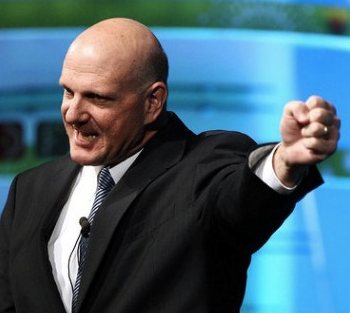Microsoft has sold 40 million Windows 8 licenses after the operating system's first month of retail availability. Tami Reller, corporate vice president for Windows and Windows Live, revealed the number at a recent investor conference held by Credit Suisse but stopped short of mentioning how many of those came from new PC sales and how many came from end users actually buying upgrades.
The 40 million figure is about in line with Windows 7's first month sales. But even if Windows 8 is just slightly outpacing its predecessor's launch that isn't necessarily bad considering the different market dynamics. Windows 7 was an iterative release met with considerable demand from day one as consumers, business users, and even OEMs sought to skip the much-maligned Vista. Windows 8 on the other hand introduces a few radical changes for the platform to a market that is generally happy with the traditional desktop experience. The PC market hasn't exactly seen tremendous growth in the last few years either, but Microsoft is hoping to counter that by getting Windows 8 into tablets as well.
The company claims Windows 8 is outpacing Windows 7 in terms of upgrades, which is probably a better metric to gauge consumer reception. However, once again there are some key differences to keep in mind, such as the fact that Windows 8 upgrades are substantially cheaper than Windows 7 upgrades were. In any case, no solid numbers were given, though last month CEO Steve Ballmer told an audience of developers at the Build 2012 conference that they had sold 4 million upgrades in four days.
A few other interesting tidbits were shared during the conference. According to Reller, the number of apps in the Windows Store "doubled" since launch (for reference, it was at around 120,000 by the end of October), and a number of apps have already crossed the $25,000 revenue mark.
She also said that 85% fire up the traditional dektop on the first day, while 90% use the Charms feature, and the average user adds 19 tiles to the Windows 8 start screen in the first three weeks. This pattern of usage is supposedly "as it is intended to be" and users are getting familiar with Metro at decent pace.
